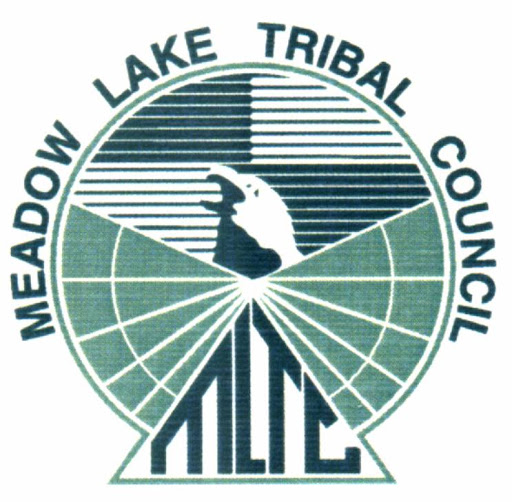Governance & Organizational Structure of MLTC
MLTC consists of nine member First Nations who were inspired to sign a Convention Act (agreement) in 1986 to form the Meadow Lake Tribal Council (MLTC) to “continue our ancestors’ mission to join and unite in a common front to protect and preserve our Indian way of life”.
The nine MLTC Chiefs-In-Assembly provide strategic direction and leadership to their Tribal Council. The Chiefs-in-Assembly meet four or more times per year. Through the MLTC Leadership Office of the Chiefs, the priorities of MLTC and its member First Nations are lobbied and advocated with other levels of government, industry and external stakeholders
The annual General Assembly is held of the nine (9) elected Chiefs and forty-seven (47) Councilors of the nine member First Nations. These elected officials meet to provide strategic direction to their Tribal Council, and to hear operational results reported against planned outcomes.
There are three elected positions within the Tribal Council:
- Tribal Chief
- 2 Vice Chiefs: one Cree and one Dene
Each of these three elected positions serves a four-year term, and is elected by the member First Nations by 49 voting delegates as follows:
- 25 Voting Delegates: Chief plus four Voting Delegates selected from each of the five Cree First Nations.
- 24 Voting Delegates: Chief plus five Voting Delegates selected from each of the four Dene First Nations.
The Tribal Chief and the Vice Chief serve in the Leadership Office of the Chiefs, providing the pipeline through which:
- Member First Nations make their political voices heard within MLTC.
- MLTC’s collective voice is then used to amplify member FN political issues to the wider world.

Incorporated Entities
Under the delegated authority of the MLTC Convention Act by the Chiefs-in-Assembly, certain non-
profit, membership Corporations have been created, largely funded by Indigenous Services Canada (ISC):
- MLTC Program Services Inc. (largely funded by Indigenous and Northern Affairs Canada
- Delivers programs such as Education, Technical Services, Economic Development, Employment and Training, and Justice; and
- Delivers the central services which support all of MLTC (HR, IT, Accounting, and Office Admin).
- Meadow Lake Health & Social Development Authority Inc. (largely funded by Health Canada)
- Delivers a full range of Health programs
- MLTC Child & Family Services Inc. (largely funded by Indigenous and Northern Affairs Canada)
- Delivers Prevention services, Child Protection services and Youth programs
Each of the above three (3) legal entities is incorporated as a Saskatchewan non-profit membership corporation. Each of the nine (9) member FNs has a 1/9th membership interest. The 3 legal entities are created under the delegated authority of the MLTC Convention Act by the Chiefs-in-Assembly. Each legal entity is governed by Bylaws and Governance Policies approved by the members. The Board of Directors of each legal entity consists of:
- A non-voting Chair, who is a Chief appointed by the 9 Chiefs-in-Assembly;
- A non-voting Co-Chair, who is a Chief appointed by the 9 Chiefs-in-Assembly; and
- Nine (9) voting Directors, one appointed from the elected Council of each of the member First Nations.
These Boards of Directors provide important governance oversight and play a key role in ensuring program delivery is effective and responsive to community needs. Each Board meets a minimum of four times per year, and also does an annual strategic planning session. In addition, each of the three legal entities holds an Annual General Meeting where the Board of Directors meets with the nine Chiefs-in-Assembly (who represent the member First Nations) to:
- Review the appointment of Board Chair and Co-Chair;
- Review and update Bylaws and Governance policies;
- Accept the annual audited financial statements, as approved by the Board; and
- Confirm the appointment of Auditor for next fiscal year audit.
To provide a connecting link, the various Board Chairs and Co-Chairs provide a brief report at each meeting of the Chiefs-in-Assembly to ensure relevant high-level program matters receive appropriate attention.
Executive Management
The day-to-day management and administration of MLTC falls to a six (6) member Executive Management Team consisting of:
- Executive Director
- Five (5) Senior Directors (Health, CFS, Education, Programs and Finance).
The task of the Executive Management Team is to execute program delivery to achieve planned outcomes following key principles of:
- Good Governance
- Sound Public Management Practices
- Transparency, Accountability, and Effective Stewardship of Resources, within the following feedback model:
- strategic planning that leads to needs assessment
- setting of measurable goals and objectives;
- evaluation and measurement of outcomes;
- reporting of results, and realignment of priorities, leading back to
- strategic planning.
The Executive Management Team works closely with the Leadership Office of the Chiefs on those program delivery needs and issues that require political attention. It is First Nation experience that political muscle must be applied on every front in order for First Nations to:
- Achieve reasonable program parity with the other citizens of Canada; and
- Ensure the unique Treaty Rights of First Nation citizens are recognized and upheld.
The Executive Management Team reports collectively to the Chiefs-in-Assembly. The Senior Directors, supported by the Executive Director, report as well, to their respective Boards of Directors of the legal entities created to receive funds and deliver services:
- MLTC Program Services Inc. (largely funded by Indigenous and Northern Affairs Canada
- Delivers programs such as Education, Technical Services, Economic Development, Employment and Training, and Justice; and
- Delivers the central services which support all of MLTC (HR, IT, Accounting, and Office Admin).
- Meadow Lake Health & Social Development Authority Inc. (largely funded by Health Canada)
- Delivers a full range of Health programs
- MLTC Child & Family Services Inc. (largely funded by Indigenous and Northern Affairs Canada)
- Delivers Prevention services, Child Protection services and Youth programs
